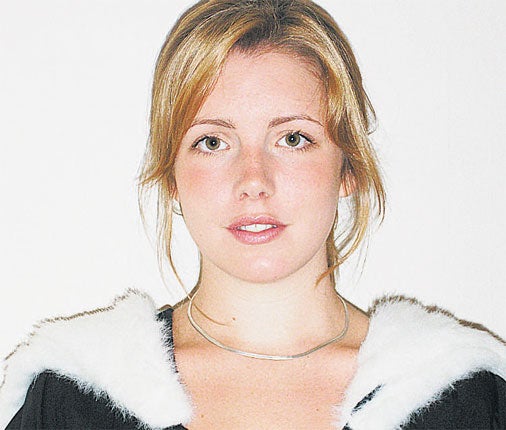Postgraduate Lives: 'Oxford on my CV might improve my chances'

Your support helps us to tell the story
From reproductive rights to climate change to Big Tech, The Independent is on the ground when the story is developing. Whether it's investigating the financials of Elon Musk's pro-Trump PAC or producing our latest documentary, 'The A Word', which shines a light on the American women fighting for reproductive rights, we know how important it is to parse out the facts from the messaging.
At such a critical moment in US history, we need reporters on the ground. Your donation allows us to keep sending journalists to speak to both sides of the story.
The Independent is trusted by Americans across the entire political spectrum. And unlike many other quality news outlets, we choose not to lock Americans out of our reporting and analysis with paywalls. We believe quality journalism should be available to everyone, paid for by those who can afford it.
Your support makes all the difference.Laura Syrett, 24, is studying for an MSt in English literature at Oxford University, having earned a first in English at the University of Durham. She started the course having done one year of a law conversion, with a view to becoming a barrister.
Why did you choose this course?
After the first year of my law conversion course, it became clear that the prospects of getting a pupil place in chambers weren’t looking good. So I decided to defer my second year, with the aim of getting a clerical job in a law firm or chambers to improve my chances of eventually getting a pupillage. But that plan didn’t work, so I ended up working in an organic farm shop near where I live in Plymouth. Then someone suggested that if I had Oxford University on my CV I might improve my chances in law. So I applied to do a Masters at Oxford.
Why the change back to English?
Oxford, quite rightly, only take you on a law Masters if you’ve completed your law conversion and got an LLB, so I decided to go back to English because I really enjoyed the subject at Durham.
What area of literature are you specialising in?
My strand is what’s known as the “long 18th Century”, from 1660 to 1830 and includes Milton, Henry Fielding, Samuel Richardson, Daniel Defoe and Jane Austen. It’s an unfashionable period to study, but Fielding’s Tom Jones is my favourite book, so I thought he deserved a bit of attention.
How’s the course organised?
I’ve been a bit disappointed at the amount of actual teaching we receive. In each of the first two terms, we have between two and four hours of contact with our teachers a week, but only for the first six weeks, then none in the third term.
I think there are not really lessons, but seminars. We sit in a group and discuss what we’ve read, without much instruction from our teachers, who also seem hesitant to contradict what you say. I thought I was going to Oxford to be taught, but the seminars are more like a talking shop.
How much work do you have to hand in?
Three 7,000 word essays and one dissertation of 10,000 words. Mine is on the aesthetic of taste in the 18th-century picaresque novel.
Are you enjoying it?
It’s great studying at Oxford, having access to the Bodleian library and to visiting speakers you wouldn’t get anywhere else. And I get on well with the others students.
What’s it costing?
After everything is taken into consideration, the tuition fees are about £5,000, and accommodation fees are about £1,500 a term.
Where next?
I’ve already found that being at Oxford is having an effect. I’ve applied for all sorts of things since I’ve been here and the responses have been more frequent and more favourable. I’m about to re-submit my pupillage application form, but I’ve also been offered a job as a researcher for Euromoney, who publish industrial journals. I’m keeping as many irons in the fire as I can, for as long as I can. I’m 24 – it’s time I got going properly.
Join our commenting forum
Join thought-provoking conversations, follow other Independent readers and see their replies
Comments